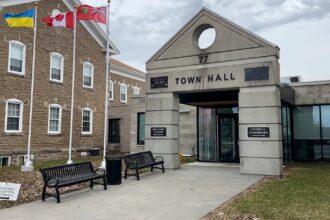The political atmosphere in Richmond, British Columbia has turned contentious as Mayor Malcolm Brodie faces mounting questions about his recent European trip and its funding sources. The controversy emerged during a heated council meeting Monday night when several councillors raised concerns about transparency and the appropriate use of public funds.
“There’s a lack of transparency about why the mayor is spending taxpayer money to go to Europe,” said Councillor Alexa Loo during the tense exchange. “He should be available to tell taxpayers what he’s doing there and whether it’s worth the investment.“
The mayor’s trip to Helsinki and Hamburg has raised eyebrows particularly because it coincided with an important Richmond council meeting, leaving some to question the prioritization of international travel over local governance responsibilities.
When pressed for details about the purpose of his European venture, Mayor Brodie remained vague, indicating only that he was attending meetings about “transportation matters.” This ambiguity has further fueled speculation among both council members and constituents.
Councillor Michael Wolfe voiced pointed criticism: “When taxpayers are footing the bill for international trips, there needs to be clear disclosure about the agenda, objectives, and anticipated outcomes. Without this information, how can we evaluate whether these expenses represent good value for Richmond residents?”
The controversy extends beyond just the trip itself. Council members have expressed frustration about learning of the mayor’s absence through third parties rather than through official channels. This communication breakdown has exacerbated tensions within Richmond’s municipal government, with some councillors suggesting it reflects a broader pattern of opaque decision-making.
Mayor Brodie defended his position, noting that council had previously approved the travel budget. However, critics argue that blanket approval of a travel budget doesn’t eliminate the need for specifics about individual trips, particularly those requiring international travel during scheduled council meetings.
This dispute highlights the delicate balance between international engagement and local governance responsibilities. While many municipalities participate in international knowledge exchanges and relationship-building initiatives, questions about accountability, transparency, and value proposition remain central to public discourse.
Richmond’s governance policies currently lack specific requirements for detailed pre-approval or post-trip reporting of mayoral travel. This procedural gap has become evident through the current controversy, prompting some councillors to suggest policy reforms may be necessary.
As this situation unfolds, Richmond residents are left wondering: In an era of heightened scrutiny over public spending and demands for governmental transparency, should we reconsider how elected officials communicate their international engagements, and what standards of disclosure should citizens reasonably expect when their tax dollars fund such activities?










